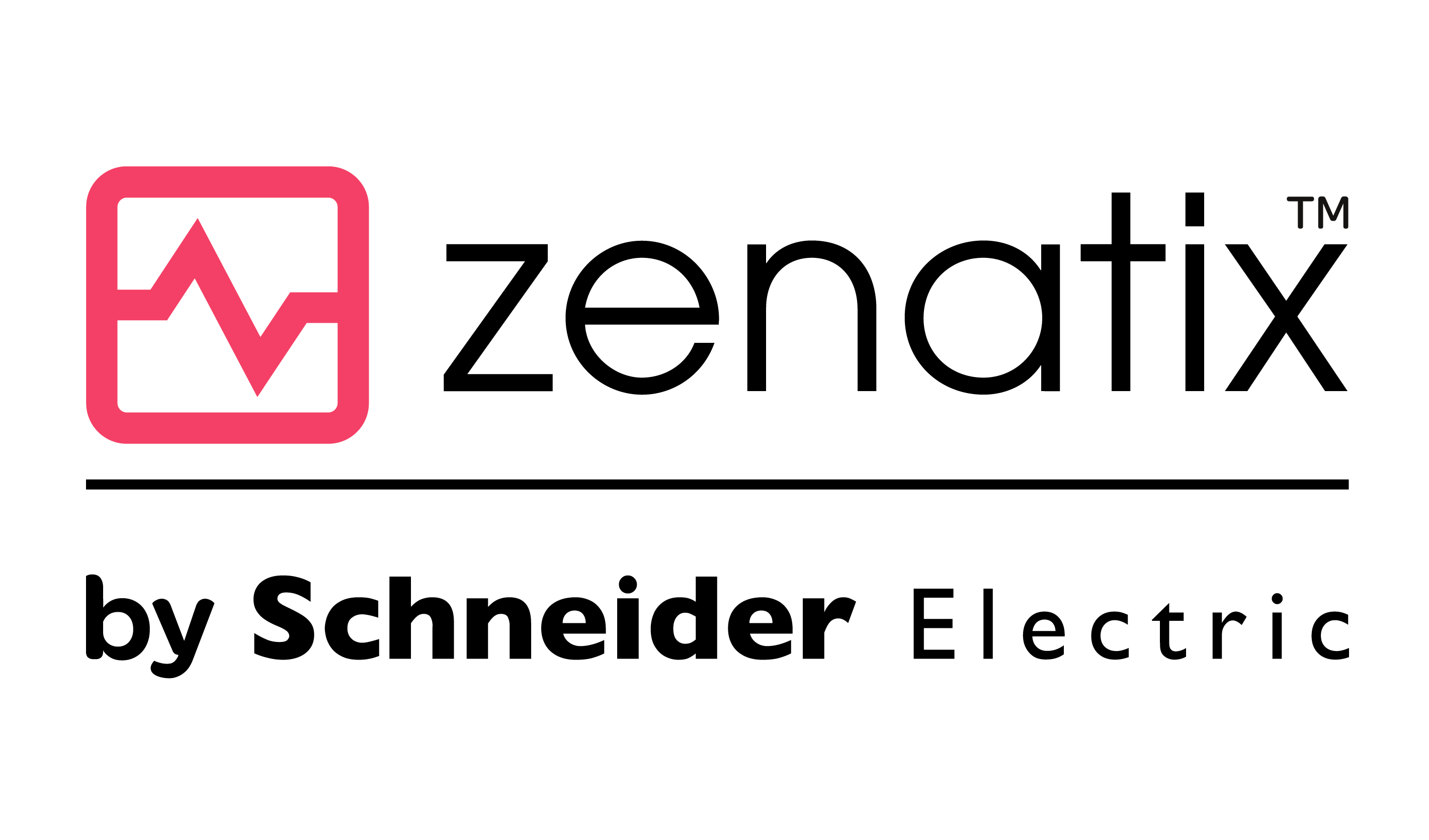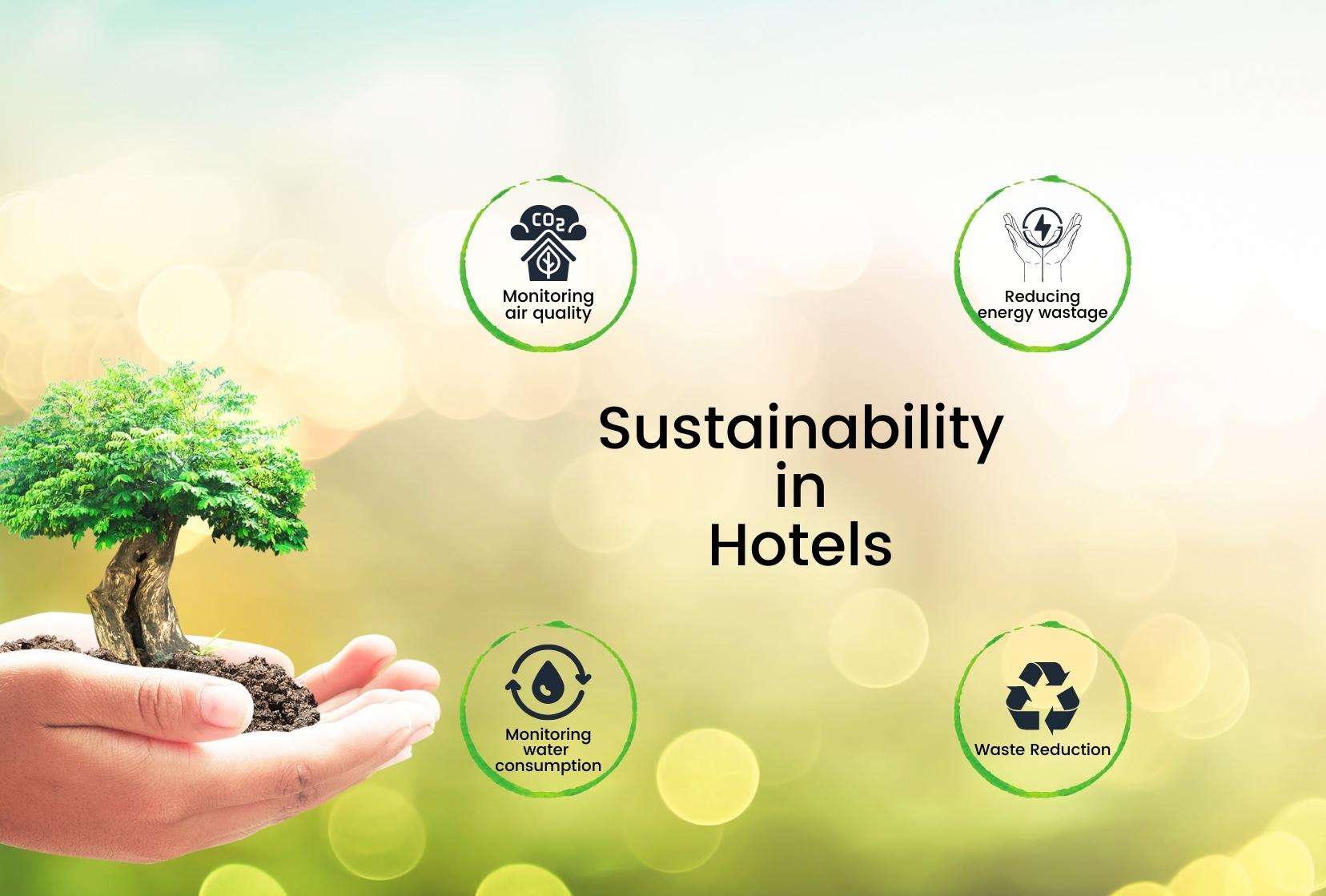Transforming the hospitality industry for Sustainable Growth
As per UNESCO, Sustainable development is defined as meeting the needs of the present without compromising the ability of future generations to meet their own needs. It is our joint social responsibility to operate sustainably to ensure the survival of our future generations.
The hospitality industry is an essential component of tourism in the world. Hoteliers across the world are investing in making improvements to their infrastructure to ensure sustainability and conservation of natural resources.
According to Booking.com’s Sustainability Report 2021, 73% of travelers are more likely to choose a hotel that practices sustainability. ‘Going Green’ has also become an effective marketing strategy to build goodwill by showcasing fulfillment of social responsibility.
IoT-driven sustainable development in Hotels!
1. Improved Indoor Air Quality (IAQ)
AQI is being degraded each day around us. Air pollution is hard to escape, and it is all around us directly affecting the indoor air quality in the hospitality industry. The health effects of air pollution are serious – increasing cases of lung cancer can be attributed to increased air pollution.
Hotels need to provide clean air to their guests. ZenConnect helps to monitor air quality using wireless sensors and displays statistics at the ZenConnect dashboard. It allows hotels to control their air purifiers to maintain a healthy atmosphere.
2. Achieving energy efficiency via automated monitoring & control
Hotels are one of the most energy-intensive buildings. Energy costs can be a significant part of a hotel’s operating budget ranging from 15-35 percent, depending on the size and star rating of the hotel. An energy-efficient system will enable sustainable development in the hotel industry, reducing energy consumption, benefiting the ecosystem, and reducing their energy cost in the process.
Hotels have massive HVAC systems which include air conditioners, refrigerators, chillers, etc which consume high power and generate heat into the atmosphere. Monitoring of operating cycles of such appliances can enable hotels to consume only the amount of energy that is genuinely required and avoid any kind of wastage. Constant visibility of energy consumption would allow the hotels to keep a
check on their usage levels. The operating cycles of such appliances can be controlled through schedule-
based or sensor-based feedback control.
3. Water is life, we can’t afford to waste it!
Water is the other natural resource that hotels consume majorly. Hotels strive to make guests feel important, and unlimited access to water is considered a staple. With a significant amount of consumption comes great responsibility to save it. Water is required in almost every hotel dimension, i.e. washrooms and lobby areas, swimming pools, kitchens, laundry rooms, cleaning & gardening purposes, etc.
ZenConnect can monitor water pumped and consumed by the hotel based on IoT sensors. It can showcase consumption in each area of the hotel. Such regular statistics about consumption will allow hotels to limit wastage. The supply can also be set as per the actual requirement using automated control. It will help the hotel manager deal with any maintenance requirements in case of excess consumption due to any leak or breakage.
4. Reduce food wastage
Hotels expect guests from around the world at any time of the day. Among all other luxuries, the hotels need to provide their guests with desired cuisines at the desired time. To fulfill this customer demand, hotels need to always maintain the best quality of perishable foods. It requires them to operate their cold rooms and chillers round the clock at a specific temperature otherwise the stored food would decay faster. To reduce wastage of food and to control the power consumption of chillers and cold rooms, ZenConnect can act as the perfect solution. It would enable IoT powered sensors to monitor the temperature inside food storages and maintain the same at the desired levels. It would also calculate the amount of power required based on the trend to operate the storage rooms and limit the consumption to the same.
To sum it up, there’s no doubt that IoT based solutions can transform the hospitality industry by increasing operational efficiency, improving customer experiences, and driving energy cost savings.
‘Getting the feeling of performing your social responsibility along with reducing your consumption and expenditure’- Two advantages the hotel Industry cannot afford to avoid.
The hotel industry is ready for sustainable development. Eco-friendly hotels are an immediate need and a sustainable, cost-efficient innovation for traditional hotel infrastructures. What’s stopping you from turning your traditional hotel into an eco-friendly one?

